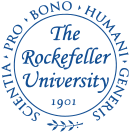 29
29 


The Rockefeller University is a world-renowned center for research and graduate education in the biomedical sciences, chemistry, bioinformatics, and physics. The university¡¯s over 80 laboratories conduct both clinical and basic research and study a diverse range of biological and biomedical problems with the mission of improving the understanding of life for the benefit of humanity. Founded in 1901 by John D. Rockefeller, the Rockefeller Institute for Medical Research was the country¡¯s first institution devoted exclusively to biomedical research. The Rockefeller University Hospital was founded in 1910 as the first hospital devoted exclusively to clinical research. In the 1950s, the institute expanded its mission to include graduate education and began training new generations of scientists to become research leaders around the world. In 1965, it was renamed The Rockefeller University. The university is supported by a combination of government and private grants and contracts, private philanthropy and income from the endowment. Since its founding, The Rockefeller University has embraced an open structure to encourage collaboration between disciplines and empower faculty members to take on high-risk, high-reward projects. No formal departments exist, bureaucracy is kept to a minimum, and scientists are given resources, support, and unparalleled freedom to follow the science wherever it leads. This unique approach to science has led to some of the world¡¯s most revolutionary contributions to biology and medicine. For more than 100 years, The Rockefeller Hospital has served as an essential link between laboratory investigation and bedside observation, as patients are participants in clinical studies building on basic research findings from Rockefeller laboratories. This continuous spectrum of research allows for in-depth study of the basis of disease detection, prevention, and observation. The David Rockefeller Graduate Program is based on the concept of learning science by doing science, and is custom tailored to its individual students and attracts a diverse group of exceptional scientists from around the world. The university also offers one of the nation¡¯s top M.D.-Ph.D. programs with neighboring Memorial Sloan-Kettering Cancer Center and Weill Cornell Medical College. In addition to the graduate program, there are other learning/training opportunities available, including postdoctoral research, fellowships for the Center for Studies in Physics and Biology and the Clinical Scholars Program, a master's degree for recent M.D. or M.D.-Ph.D. recipients to begin careers in patient-oriented research.
 29
29 
| Subject | Rank |
|---|---|
Biological Sciences | 13 |
Human Biological Sciences | 27 |
Clinical Medicine | 38 |